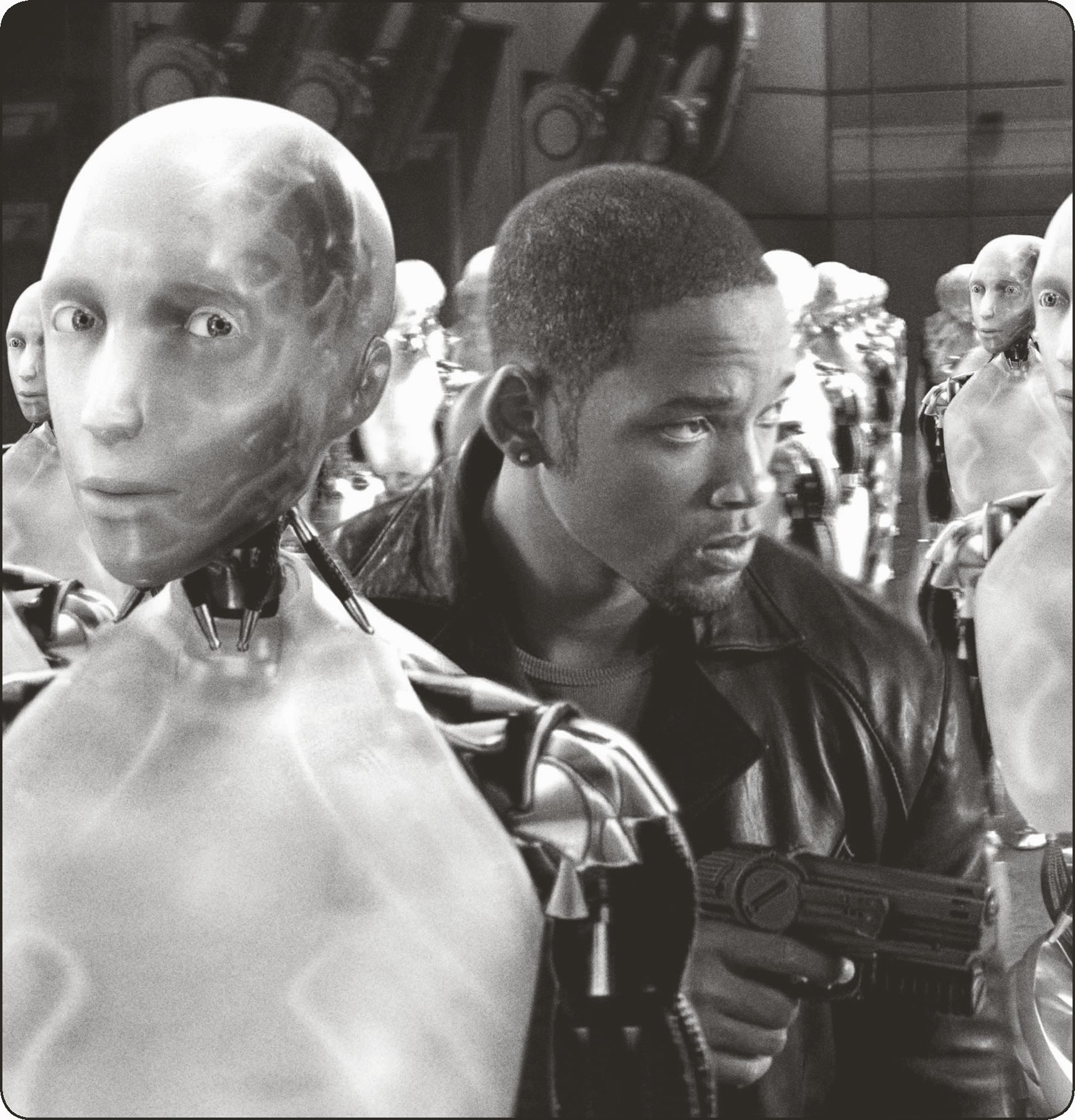
I, ROBOT 2004
 56%
56%
Directed by Alex Proyas
Written by Jeff Vintar and Akiva Goldsman
Starring Will Smith, Bridget Moynahan, Alan Tudyk, Bruce Greenwood, James Cromwell
Synopsis
A mystery arises when a robotics scientist apparently commits suicide. The homicide detective called to the scene has a history with the dead man and investigates a robot exhibiting unusual programming.
Why We Love It
Will Smith lays on the charm in a futuristic setting as robot-skeptic Detective Del Spooner, whose unique history as a former patient of James Cromwell’s Dr. Alfred Lanning lands him in the center of the investigation of Lanning’s murder. Isaac Asimov’s Three Laws of Robotics prevent robots from harming a human, but all evidence in Lanning’s death points to Sonny, an NS-5 by U.S. Robotics Corp. who refers to Lanning as his “father,” rather than “maker,” and exhibits unheard-of emotional responses.
Critics seemed so caught up on the film’s faithfulness to Asimov’s source material that they perhaps forgot to have fun while watching Alex Proyas’s take on it. And it’s a helluva lot of fun. If Smith’s natural swagger, Bridget Moynahan’s stiff resolve, and Alan Tudyk’s moving performance as the robot suspect weren’t enough, you’ve got solid effects, killer action sequences, and an unusual twist.
The effects, in particular, are worth the watch, and the film was deservedly nominated for an Academy Award in 2005 for Best Achievement in Visual Effects. The robots appear simultaneously fluid in their motion and firmly mechanical. Roger Ebert compared the robot swarms to Starship Troopers’s insects, functioning much like video game targets. (Gamers will likely not have a problem with that.)
“You can’t even be mad at them, since they’re only programs,” Ebert wrote. “Although, come to think of it, you can be mad at programs; Microsoft Word has inspired me to rage far beyond anything these robots engender.” It’s exactly that rage that the film attempts to tap into, a frustration with day-to-day technology that stubbornly refuses to yield to its human user. (In this case, though, the malfunction is technological malfeasance rather than user error.)
I, Robot also gifted us with a number of great catchphrases spoken amidst all the action and technical spectacle: “You are the dumbest smart person I have ever met in my life,” “Somehow, ‘I told you so’ just doesn’t quite say it,” “[Sneeze] Sorry, I’m allergic to bullshit,” and one designed for limited use: “This relationship just can’t work. I mean, you’re a cat, I’m black, and I’m not going to be hurt again.”
There are, admittedly, some glitches in this system. However, emotionally investing in sci-fi already requires setting aside reality, so is it really so difficult to believe that Dr. Lanning—the smartest smart person Detective Spooner knows—can’t figure out how to stop rogue A.I. without killing himself?